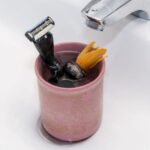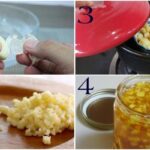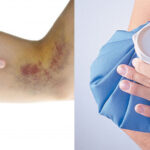Managing Flaky Skin on Your Face
– Switch Medications
Acne medications, antihistamines (for allergies), statins (for cholesterol), and diuretics (for removing excess fluid from the body) can cause excessive skin dryness, leading to flaking. Switching to a similar medication with your doctor’s guidance may reduce facial flaking.

Consult your doctor about alternative medications to reduce facial flaking.
– Systemic Antibiotics:
Antibiotics are often prescribed to kill bacteria and heal infections that cause facial flaking.
– Topical Corticosteroids:
Corticosteroid creams or ointments can treat the symptoms of flaking and peeling on the face. Topical corticosteroids are typically classified into four types, depending on their potency and effects on the skin. While higher potency corticosteroids have a more potent anti-inflammatory effect, the risk of side effects also increases with prolonged use.
– Moisturizers: When treating flaky skin, dermatologists recommend applying moisturizers immediately after washing and drying your face.
Home Remedies for Flaky Skin on the Face
– Aloe Vera: A common ingredient in over-the-counter moisturizers, aloe vera has antioxidant properties that can expedite the healing process, especially for sunburns or other skin injuries.
Use sunscreen with a sun protection factor (SPF) of at least 30 to 45. If you have a sunburn, apply aloe vera gel first, let it absorb, and then apply sunscreen before going outdoors.
– Honey: Honey possesses tissue-repairing and immunomodulatory properties. This can be beneficial in healing flaky facial skin.
– Hydration: Drinking adequate water can help enhance hydration in the epidermis and deeper layers of the skin. This may reduce skin flaking.

Stay hydrated to promote hydration in the epidermis and deeper skin layers.
– Shield Your Face from Harsh Weather: Wear scarves and masks, and use sunscreen with an SPF of 30 or higher all year round.
– Opt for Mild, Fragrance-Free Cleansers: If you’re experiencing flaky skin on your face, try switching to milder face washes or cleansers that are less drying and maintain the skin’s pH balance. Avoid using cleansers with antibacterial properties or strong fragrances, as these can further dry and irritate the skin.
– Pat Your Face Gently When Drying: After washing your face, gently pat your skin dry with a soft, clean towel. Avoid rubbing or scrubbing, as this gentler approach can help prevent facial flaking and discomfort.
The Ultimate Guide: 15 At-Home Remedies for Intimate Itch Relief
Itching in your private area is an embarrassing and challenging issue for women. It’s a sensitive topic that can impact your overall well-being. You may feel reluctant to discuss it, but rest assured, you’re not alone. We’re here to offer effective and safe solutions to alleviate that itch and restore your comfort and confidence.



































